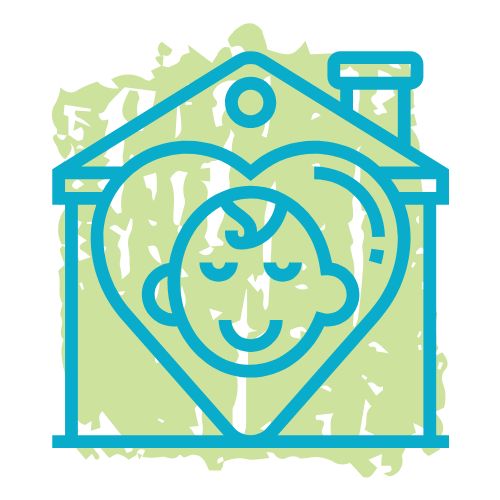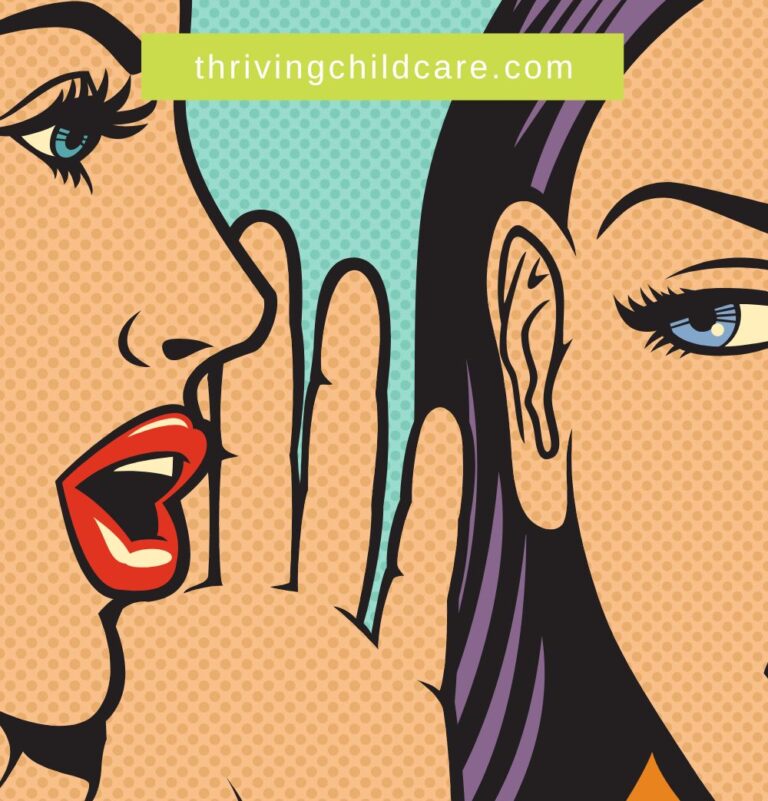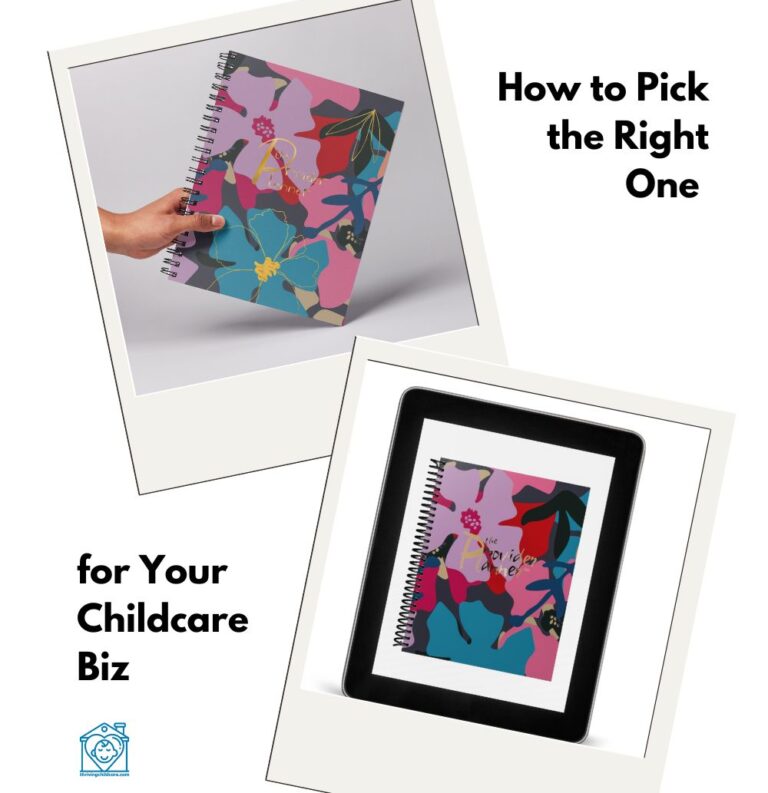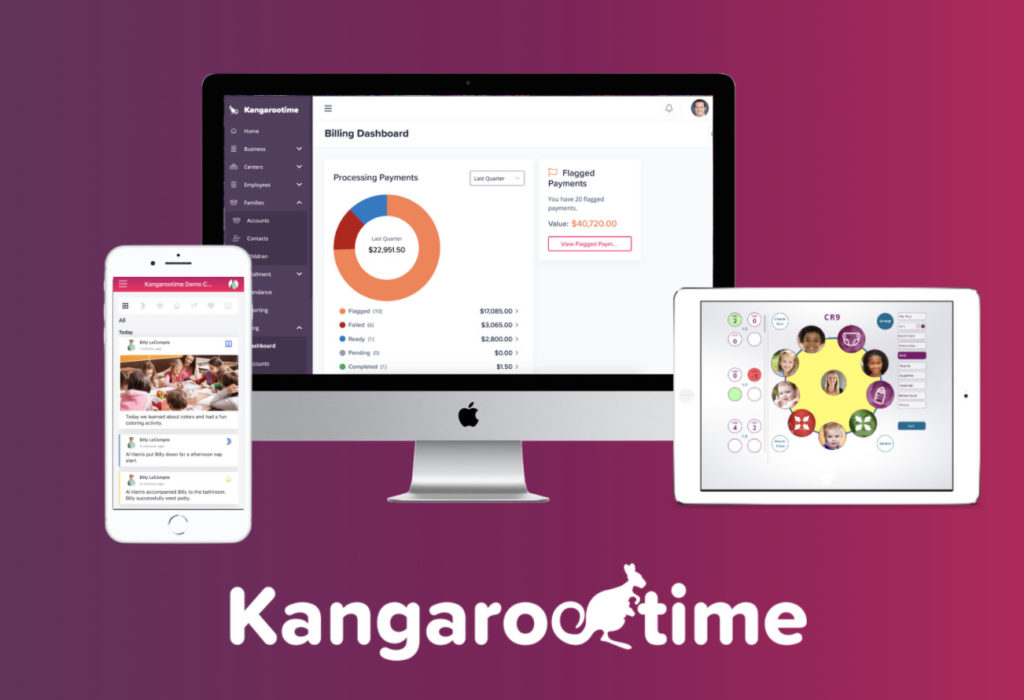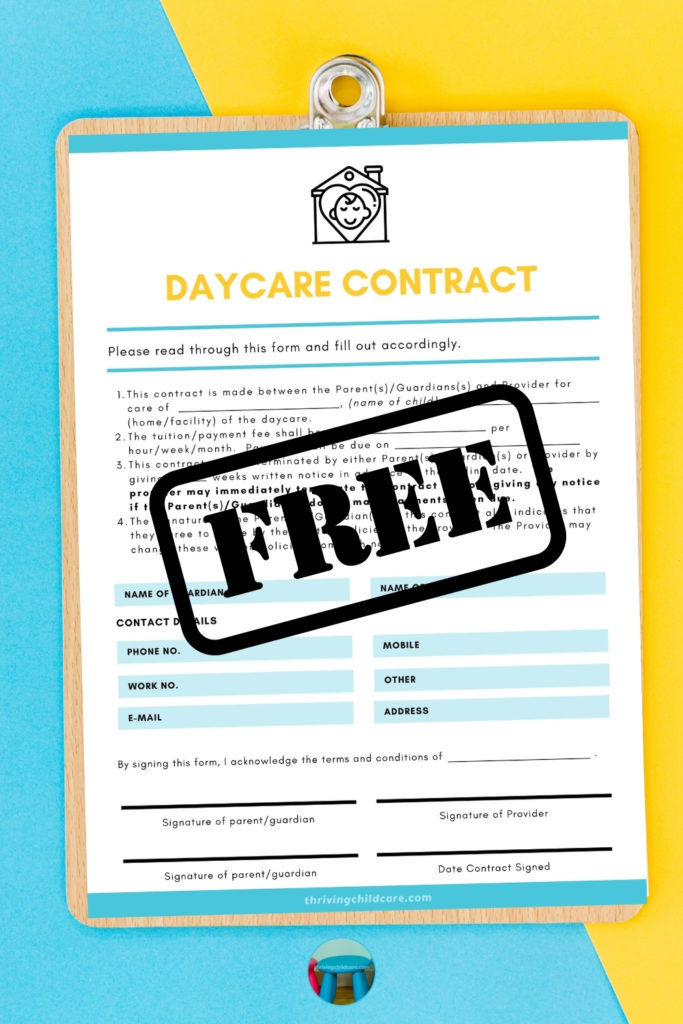With the many hats that a provider wears, it is no wonder many experience provider burnout. From dealing with nervous new parents to constantly crying babies to dealing with licensing, PROVIDERS DO A LOT. If we are not careful the lot can turn into burnout.
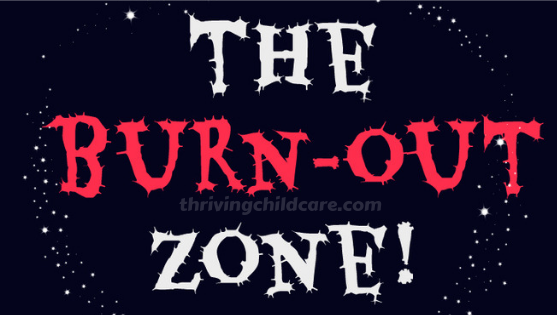
To be honest I think I suffered from provider burnout very early in the game. Probably within the first three years of starting my childcare I was feeling stressed, overworked, and generally burnt. I am actually not quite sure I ever fully recovered. I think it just lingers in the background like a dull headache. Ready to flip into burnout overdrive at a moment’s notice.
So today I want to share with you how you can recognize if you may be experiencing provider burnout. What it is, the symptoms, the effects of stress, and finally what to do to reduce some of the stress that can lead to burnout.
The following is a post originally written by a fellow provider who wishes to remain unknown. She states that her only goal is helping fellow providers.
So What Is Provider Burnout?
What is Provider Burnout?
In a study conducted at the University of Maryland, by Susan Walker, PhD, in-home family daycare providers were proven to be particularly prone to personal stress. The factors that they stated contributed to this were: long hours (average of 60 hours a week), low pay (an average of $15,000 a year), and the low value of their job to the public despite the huge need for care. All of these factors deem daycare providers at high risk for burnout.
There are three stages of provider burnout:
- Persistent irritability and anxiety
- Bruxism and/or Insomnia
- Occasional forgetfulness and/or inability to concentrate
- Absenteeism or tardiness for work
- Tired and fatigued for no reason
- Procrastination and indecision
- Social withdrawal with cynicism
- Resentful, indifferent, defiant
- Increased use of coffee, alcohol, tobacco, etc.
- Chronic sadness or depression
- Chronic mental and physical fatigue
- Chronic stress-related illnesses (headache, stomach ache, bowel problems, etc.)

So how do you know if you or a loved one is suffering from burnout?
Here are the early warning signs:
- Chronic fatigue – exhaustion, tiredness, a sense of being physically run down
- Anger at those making demands
- Self-criticism for putting up with the demands
- Cynicism, negativity, and irritability
- A sense of being besieged
- Exploding easily at seemingly inconsequential things
- Frequent headaches and gastrointestinal disturbance
- Weight loss or gain
- Sleeplessness and depression
- Shortness of breath
- Suspiciousness
- Feelings of helplessness
- Increased degree of risk-taking
- Isolation, withdrawal, self-destructive thoughts
What do you do if you are suffering from burnout?

- Take a break!!! Get a massage, meditate, hide, stare at a wall…getaway!
- Ask for loved ones to lighten the load and help with your responsibilities.
- Simplify your life. What can you take out?
- Relax and nurture yourself.
- Seek professional help if it gets severe.
- Reduce your stress!!!
STRESS – Know thy enemy…
Studies have proven that in-home daycare providers are more prone to stress than the average bear.
Yet there are little or no resources for daycare providers for reducing and managing stress.
Why is this? We can only suppose that everyone is too stressed out to do anything about it!
Studies have proven that in-home daycare providers are more prone to stress than the average bear.
In a study of providers in Maryland:
37% of providers rated themselves as experiencing very high
or somewhat high levels of stress in the past month
54.5% had effects on health behaviors
51.7% enjoy their job less than the typical population
35% report feeling bad physically
33.6% experienced strong moods provider burnout
WHAT IS STRESS?
Stress is the excitement, feeling of anxiety and/or physical tension that occurs when demands placed on an individual exceed his or her ability to cope.
We need stress in many ways. It helps us to survive, it is our fight or flight response. It helps us to cross the street, move out of the way when something is thrown at us, be frightened when somebody yells “boo”. We want to stay out of the way of danger so our body physically
responds to surprises so we don’t kill ourselves and we fear things.
Stress response: When challenged, the body undergoes a progressive series of responses that are first triggered by an external stimulus termed the stressor. The more prolonged and accelerating reactions produce an intense and severe disruption called strain. All of this moves the body away from homeostasis, the maintenance of equilibrium of the internal body functions in response to external changes. provider burnout
WHAT CAUSES STRESS?
- Psychological causes
- Life changes–events, circumstances or perceptions
- Overload–too much to do, not enough time to do it
- Insufficient resources–not enough money or time
- Frustration–lack of happiness or fulfillment
- Trauma or loss–death of a close friend or relative provider burnout
External causes
- Occupation
- Environmental strain (noise, temperature, etc.)
- Substance abuse (alcohol/drugs)
- Nutritional excesses (caffeine, sugar)
- Nutritional deficiencies (vitamins or nutrients)
Personality causes
- Self-perception
- Anxious reactivity, hypervigilance, worry
- Need for control
- Time urgency
- Anger or hostility
Major sources of stress in daycare include:
- conflicts with parents
- role conflict
- not being able to balance work and family
- fairness in housework
- feeling overloaded
- not having enough time for family activities
- not enough time with family
- not enough money
- conflict with their own family
- not having enough children in their daycare provider burnout
Here’s how to overcome burnout
Other things that affect our stress:
Poor resource management: Time and money are precious and limited resources. Wasting either of these creates serious tension and stress. Unwillingness to delegate or let go of control also increases stress.
Personal relationships: Romance and love are exciting eustress experiences while conflict, jealousy, and resentment are common distresses when a relationship breaks down.
Self-perception: Low self-esteem and self-confidence together with the absence of feeling connected or empowered, can all precipitate stress reactions. Taken to excess (self-confidence) these can lead to egoism and cockiness which will cause different stress reactions.
Beliefs and attitudes: Family scripts like “A penny saved is a penny earned,” “A job worth doing is worth doing well” can cause undue stress and force the person to live up to an unrealistic image.
WHAT ARE THE POSSIBLE EFFECTS OF STRESS ON THE BODY?
- muscle tightness and tension
- decreased immunity, increased sickness
- aches/pains in back and neck
- fatigue and lack of energy
- headaches, migraines
- digestive problems
- depression and/or anxiety
- decreased ability of movement
- accelerated aging
- These can lead to: high blood pressure; restricted movement;
ulcers; heart attack; cancer; stroke; etc.
WHAT CAN WE DO ABOUT OUR STRESS?
- Simplify your life
- Avoid over-commitment and over-responsibility
- Learn how to say “NO”.
- Delegate your duties, have others help you.
- Eat right, exercise, get enough sleep
- Relax and breathe
- Take some time for you every day
“It’s not what happens to you in life that matters, it’s how you react to what happens to you that counts.”
REDUCING STRESS
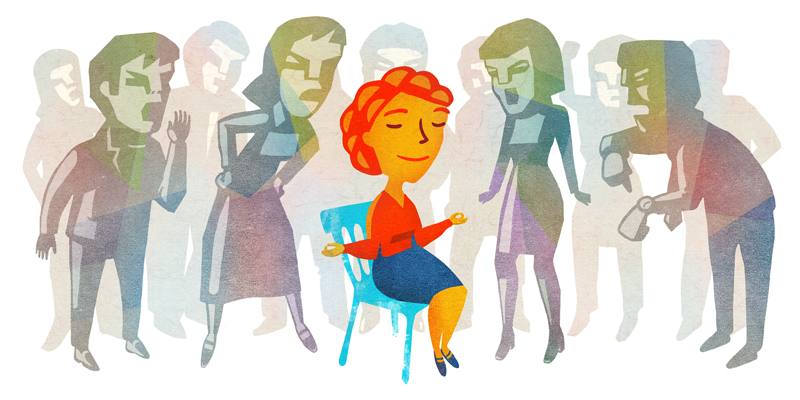
4 areas where you can reduce stress in your daycare business:
1. Daycare environment-
How is your daycare set up? Is it cluttered? Are toys and activities easily accessible? Is it bright and cheery or dark and dreary? What colors are the basic colors of the room? Does the area provide space to relax or is it constantly high energy? Did you know that you can use color and scents to induce different moods and tones in your house?
YOU can train your parents how to treat you
2. Business Practices-
Are your parents driving you crazy? *Do they know what is expected of them? Do you have policies in place? Do you act like a professional? Did you know that you can train your parents how to treat you and your business? How do you find the balance between giving the parents what they want and keeping your sanity? Do you run your daycare like a business or like a babysitting service? Do you have preschool programs? What can you do to enhance your services to the family that you can have fun with?
3. Children-
Do the children know what is expected of them? Are you consistent with discipline or is it something you have to continue to revisit? Do children have a balance of relaxing and stimulating activities? Is there enough transition time between activities? Is there enough variety of toys and activities for each child’s interests? Do you have engaging activities such as music, exercise or stretching, yoga, dancing, that keeps the children interested and allow them to use fine and gross motor control?
4. Yourself-
Do you take enough time for you? (HA!–we all say that) *
- Do you think you DESERVE time for yourself? *
- Do you know how to nurture your body, mind, and spirit? *
- Do you exercise some every day besides lifting kids on and off the diaper changing table? *
- Do you have a hobby that you have been dying to take up?
- Is your attitude positive?
- Can you learn how to make some time for yourself every day?
- Are you too serious or do you laugh things off easily?
- Do you over-commit yourself? *
- Do you ask others for help? *
- Do you take time off?

Related Reading:
- JUST FOR CHILDCARE PROVIDERS; Why You Need ME Time
- Reasons Why Almost All New Providers Fail And How You Can Avoid Them
- What’s The 9-Hour Rule?
- Overcoming Burnout In Child Development
- The Best Morning Routine The Daycare Provider Needs
